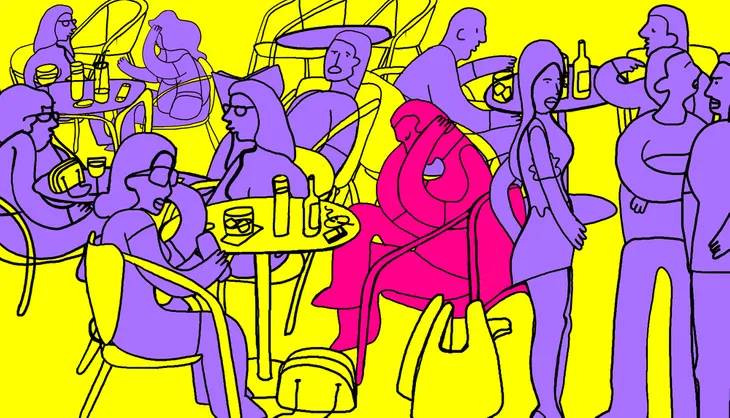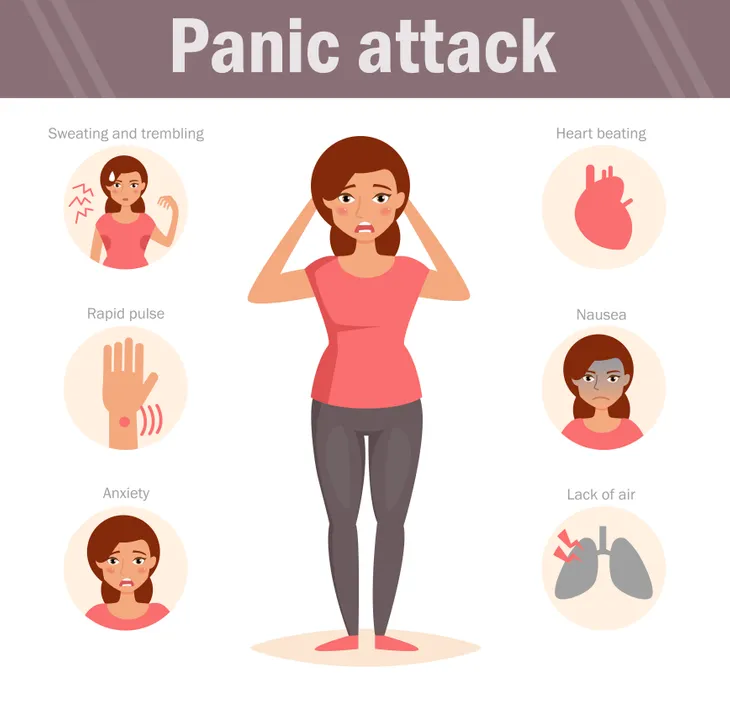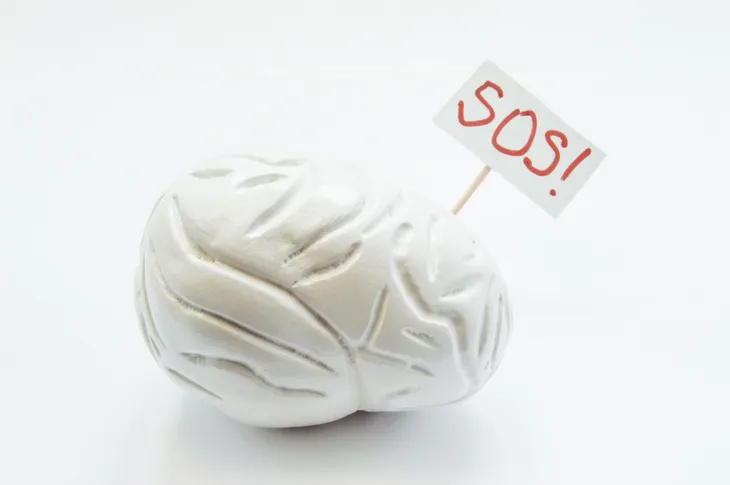Humans are social animals, but feeling uncomfortable in social situations is a reality for many Americans. In fact, people can feel so uncomfortable that they have to leave an event, or they choose not to go in the first place.
As the Mayo Clinic points out, there are some situations where it’s normal to feel anxious – like during a job interview, or going on a first date. But with social anxiety, you can feel overwhelming symptoms in everyday interactions. Let’s take a closer look at the science behind social anxiety (also called social phobia)…
Triggering Situations
For those with social anxiety, a simple trip to the barber or the grocery store can be a scary proposition. WebMD says anxiety can rear its ugly head in smaller interactions (one-on-one), or interactions involving larger groups of people.
For example, situations that may cause difficulty include talking to strangers, speaking in public, using public bathrooms, eating in front of others, going to school/work, or going to parties (which are supposed to be fun), explains the source.
The Physical Symptoms
It’s not easy to hide the symptoms of social anxiety. While your brain may tell you that there’s nothing to be afraid of, your body may respond differently – through blushing, quickened heart rate, sweating, trembling, nausea, or dizziness, says the Mayo Clinic.
You may disengage from a conversation or have trouble remembering what someone just said to you when you’re in the throes of anxiety – like forgetting someone’s name at a party after hearing it moments earlier. The source says you may have a “feeling that your mind has gone blank.”
Anxiety Can Lead to Panic
While the physical symptoms of social anxiety disorder can be mild to moderate for some people, for others they can grow into a full panic attack, due to their anxiety around social situations and other situations where they have to perform.
Panic attacks can sometimes be so severe that they result in the patient believing there’s another underlying medical condition, notes VeryWell Mind. However, people with social anxiety disorder often can differentiate the symptoms of a panic attack from another problem, unlike those with panic disorder, it adds.
The Cognitive Aspect
The same source notes social anxiety can affect how you think as much as how you feel. VeryWell Mind describes people with social anxiety disorder having “dysfunctional thought patterns.”
“Individuals with this condition are bothered by negative thoughts and self-doubt when it comes to social and performance-related situations,” it adds. These patterns can wear down your feelings of self-worth over time if not addressed, it adds.
Cognitive Symptoms
VeryWell Mind says the cognitive symptoms associated with social anxiety disorder include having a “negative bias,” which it says is a “tendency to discount positive social encounters and magnify the social abilities of others.”
You may also have “automatic” negative thoughts about how you perform in social or performance-based situations, adds the source. You may make assumptions that others will negatively judge you or notice your anxiety, it adds.
How it Affects Behavior
Aside from the negative thoughts patterns that it can perpetuate, the NHS in the UK says there are specific behavioral patterns associated with social anxiety disorder. For example, you may think someone who talks a lot isn’t anxious, but that’s actually one of the signs, notes the source.
Other behavioral signs of social anxiety include fidgeting, avoiding eye contact, speaking in a low tone or not speaking at all, or abruptly exiting a situation, it adds.
Avoidance Techniques
People with social anxiety disorder often learn ways to avoid situations that will trigger their anxiety. VeryWellMind says a person may remove things from their life that can trigger symptoms – such as dropping a class in school because it involves giving an oral presentation.
A person may also turn down a job opportunity based on perceived fear, not because they don’t want the position. “They tend to make choices based on fear and avoidance rather than actual preferences, desires, or ambitions,” adds the source.
It May Be Inherited
The Mayo Clinic explains there are a few reasons a person may develop social anxiety. One of those reasons may be due to hereditary factors, as anxiety disorders tend to run in families, it says.
“However, it isn’t entirely clear how much of this may be due to genetics and how much is due to learned behavior,” it stresses.
Brain Structure Can Play a Role
The Mayo Clinic also says the structure of your brain itself may be responsible for the symptoms. The part of your brain called the amygdala (located deep in the brain) may be linked to fear response, it notes.
The clinic says patients with social anxiety disorder may have an overactive amygdala, which means more fear in everyday situations and increased anxiety when around other people.
It Can Be Life-Limiting
Plain and simply, WebMD says the disorder “prevents you from living your life.” That’s because you’ll avoid situations that may seem unthreatening to others, and that would normally provide joy.
Avoiding social situations can have a number of negative side effects – such as having low self-esteem, being overly sensitive to criticism, possessing poor social skills, and being depressed, says the source. That’s not to say there aren’t ways to help people with the disorder, which we’ll get to.
Outside Factors
While predisposition to anxiety may play a role, there are environmental factors that can trigger the disorder, says the clinic. It says it may be a learned behavior – “some people may develop the condition after an unpleasant or embarrassing social situation.”
As we noted before, there could be a family link – in particular, people can pick up anxious behavior from their parents, whether the parents act a certain way in social situations or seem more controlling or overprotective of their children, it adds. Being bullied or abused as a child can also increase the risk of developing the disorder, it explains.
Risk Factors
Some of these we’ve covered already, but the Mayo Clinic says if you’ve had negative experiences in your life – the kind that involve being bullied, rejected or abused – you may be more likely to develop social anxiety disorder.
Shy or withdrawn children who act restrained in new situations may be at higher risk, as well as people who have a condition that attracts negative attention (such as stuttering or disfigurement), says the source. While the condition usually appears during the teen years, it can develop for the first time when meeting new people, making a public speech or delivering an important work presentation, says the clinic.
Treatments
VeryWell Mind says that while social anxiety can be crippling, “the good news is that people with social anxiety respond well to treatment.” Treatments can include exposure therapy, which involves exposing the patient to triggering factors in a safe and supporting environment.
Doctors may also opt for cognitive behavioral therapy, which helps patients understand and replace their thought patterns, and it can help with the associated cognitive and behavioral symptoms, it adds. Certain medications, such as SSRIs (including Zoloft and Paxil), benzodiazepines (including Xanax and Klonopin), and even the blood pressure medication clonidine can be helpful.
















